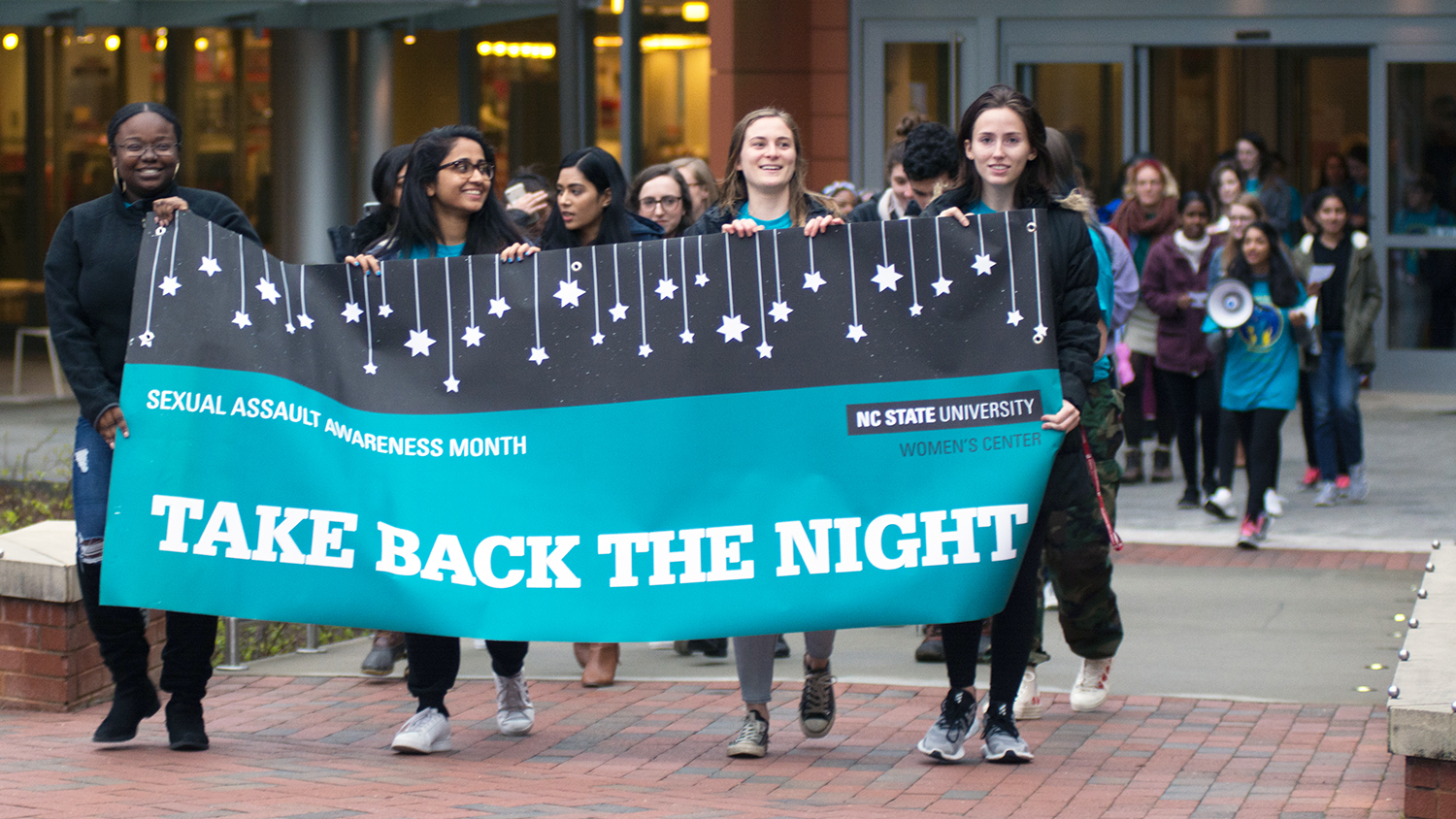
Every April, the Women’s Center and its partners observe Sexual Assault Awareness Month (SAAM), part of a national effort to bring attention to the issue of sexual violence. Throughout the month, we typically host workshops, film discussions and opportunities to engage in expressive arts. The most recognizable event during SAAM is, of course, the annual Take Back the Night events.
In its 33rd year, this year’s Take Back the Night will look a bit different from previous years when we’ve hosted a resource fair, rally, march and speak-out. As we continue to adjust plans and move to a virtual platform in light of COVID-19, you might also be wondering what other changes have occurred over the span of the past three decades of rape prevention efforts at NC State.
For example, you may be wondering:
- What is the origin of the name “Take Back the Night?”
- How have past efforts upheld harmful rape myths?
- How is NC State’s current work to prevent and respond to interpersonal violence more inclusive?
Thanks to Samantha Aamot, graduate student in public history, we have some amazing new resources that help us answer these questions. Over the past six months, Aamot has combed through the the NC State Special Collections Research Center; met with archivists, The Movement peer educators and Women’s Center staff; and written and produced a web-based digital story map and created the first-ever historical video in partnership with The Movement, that features archival footage tracing the history of Take Back the Night here on campus.
Aamot also served as the peer scholar for the Feminist Friday on Apr. 3, 2020, “Take Back the Night (From whom?).” During this special SAAM Feminist Friday, Aamot gave an overview of the history of the national movement and early rape prevention education at NC State. Using an intersectional feminist lens, she critiqued prominent racialized and gendered rape myths these movements perpetuated over the years, including the hypersexualization of Black women.
In addition, Aamot discussed “silences in the archive,” a term coined by historians to denote gaps in historical knowledge which uphold systems of oppression that marginalize and erase the experiences and contributions of those not reflected in history. This silencing, therefore, contributes to the reinforcement of white male colonialist histories. During the course of her archival research, Aamot often ran into barriers associated with this silencing and shared some of the challenges of writing intersectional histories using NC State’s archive and special collection.
Despite these challenges, the history of NC State’s Take Back the Night and other rape prevention programs have remained part of the social and cultural fabric of the campus. Today, campus advocates have fought for more inclusive marches, continue to promote peer education and interpersonal violence prevention efforts and strive for ways to support all survivors. While this year’s Take Back the Night will move to a virtual platform and have a modified program, we hope that you will join us to help write the next chapter for Take Back the Night at NC State. To participate in this year’s Take Back the Night virtual rally, please register at go.ncsu.edu/TBTN.
For more information on other virtual SAAM events taking place this month, including expressive arts therapy, the Clothesline Project and a workshop focused on interpersonal and sexual violence in the LGBTQ community, please see go.ncsu.edu/SAAM.
** If you or someone you know is experiencing relationship violence, sexual violence or stalking and are in need of advocacy services, the Women’s Center has trained advocates available to offer crisis intervention, emotional support, resources and referrals. Please contact us on the 24/7 Sexual Assault Helpline at 919.515.4444 or via ncsuadvocate@ncsu.edu to be connected with an advocate. For more information, please see go.ncsu.edu/supportsurvivors. **
Janine Kossen is associate director for interpersonal violence services in the Women’s Center.